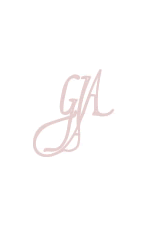- |
User Links
Here from All Nations
Hymn Information
- First Line
- Here from all nations, all tongues, and all peoples
- Author
- Christopher Idle (1972)
- Tune Name
- O QUANTA QUALIA
- Harmonizer
- John B. Dykes, 1823-1876 (1868)
- Tune Source
- <cite>Antiphoner,</cite> Paris, 1681
- Topic
- New Heaven and Earth
Copyright Information
- Text Copyright
- © 1973 The Jubilate Group, admin. Hope Publishing Company
- Tune Copyright
- Public Domain
- Reprint/Projection Information
- Words: Permitted with a license from CCLI.com or from OneLicense.net. If you do not own one of these licenses, please contact the copyright holder for permission.
- Music: The Music is in the Public Domain; you do not need permission to project or reprint the Music.
Full Text
Scripture References
Further Reflections on Scripture References
In Revelation 7:9-17 the apostle John records his vision of a great multitude of God's children "from every nation, tribe, people, and language" standing before the Lamb and singing doxologies. The text is a most comforting description of the end of human troubles: no more thirst or hunger, no more griefs or trials. Now the people live by streams of living water under the care of their Shepherd–the complete fulfillment of
Psalm 23!
Confessions and Statements of Faith References
Further Reflections on Confessions and Statements of Faith References
Finally, believers will experience the church of all peoples gathered before God. When singing “Here from all nations, all tongues and all peoples, countless the crowd, but their voices are one,” consider the words of Our World Belongs to God, paragraph 30: “The Spirit gathers people from every tongue, tribe and nation into the unity of the body of Christ.” This diversified unity will become obvious when he brings the new heaven and earth.
Here from All Nations
Tune Information
- Name
- O QUANTA QUALIA
- Key
- F Major
- Meter
- 11.10.11.10


 My Starred Hymns
My Starred Hymns






